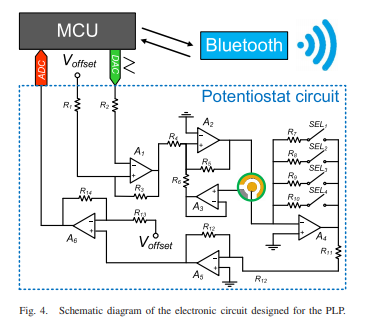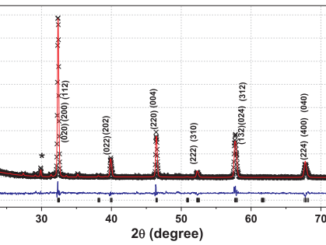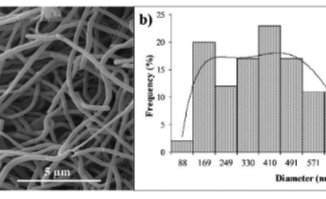
Portable Laboratory Platform With Electrochemical Biosensors for Immunodiagnostic of Hepatitis C Virus
Abstract: This paper presents a portable laboratory platform (PLP) with electrochemical amperometric biosensors for the detection of hepatitis C virus (HCV). This PLP is composed by a controller unit, a Bluetooth module to provide communication with mobile devices, and a potentiostat circuit to perform cyclic voltammetry. The Bluetooth communication allows the mobile devices to set up the parameters, e.g., a cycling voltage in the range ±1.5 V, a scan rate in the range 5–1000 mV −1 with a step potential of 2.318 mV, and up to 4000 number of scan cycles. The electrochemical sensors were functionalized with cystamine (C4H12N2S2) and glutaraldehyde (C5 H8O2) to make the covalent binding with the recombinant core-HCV protein. The experimental results have revealed a positive detection of HCV, using a redox solution of 5 mmol.L−1 of potassium ferrocyanide (K3Fe(CN)6) on 0.1 mol.L−1 of phosphate-buffered saline (PBS). The sensitivity of the immunosensor was established at the concentration of 1 ng. μL−1 of the anti-core-HCV IgG class antibody. This PLP has a plug-and-play connection for the biosensors, and at the same time, it offers good ergonomy with easy operation due to its low dimensions (115 mm×75 mm×30 mm). This PLP presents a power consumption of 280.5 mW when supplied with a 3.3-V voltage source. This consumption was measured in the worst operation case, e.g., with the Bluetooth working, resulting in an average battery life of 195 min.
Author(s): João Paulo de Campos da Costa, Wagner Benicio Bastos, Paulo Inácio da Costa, Maria Aparecida Zaghete, Elson Longo, and João Paulo Carmo
IEEE SENSORS JOURNAL
Volume: 19 Pages: 10701 – 10709 Published: NOV 15 2019
DOI: 10.1109/JSEN.2019.2930957




